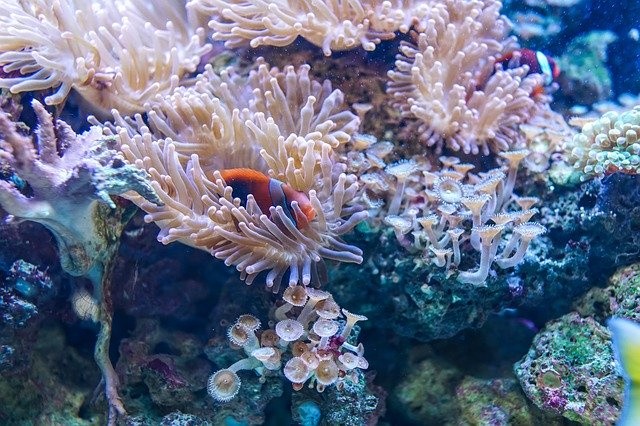
Scientists suggest that 70- 90% of all existing coral reef habitat will be eliminated over the next 20 years due to rising sea temperatures and acidic waters. To curb this, some groups are transplanting live corals from the laboratory to dying reefs.
Scientists are pessimistic, however, noting that restoration projects may seem futile as research mapping for best areas for restoration show that by 2100, few to zero suitable habitats will remain as sea surface temperature and acidity are changing due to climate change. Researchers emphasize the urgent need to protect corals by combatting the rising level of ocean temperatures and worsening ocean acidification caused by global warming.
Bleached Out Corals, Wiped out Corals
The study, done by researchers at the University of Hawaii emphasized the widespread coral bleaching, the devastating effect of climate change on corals. Coral bleaching happens if corals are exposed to warm waters for long periods. This causes the algae found within the coral to separate from the animal, causing corals to lose their colors and leave behind a visible white skeleton. Corals will also tend to weaken or die, which happens in cases of severe bleaching.
To map areas that are suitable for coral restoration efforts in the next decades, researchers simulated ocean environment conditions such as sea surface temperature, wave energy, the acidity of the water, pollution and overfishing in areas with existing corals.
The result of the study showed that areas, where coral reefs exist today, will be wiped out by 2045, showing a much worst condition by 2100. The researchers point rising temperatures and ocean acidification are to be blamed for the dying coral habitats. The study also revealed that human pollution plays a minor contribution to the looming eradication of reef habitat "because humans have already caused extensive damage to coral reefs."
Combating Climate Change
Some groups have been racing against time to bring corals back to life by coral restoration. Yet, these recent findings suggest that coral restoration may not be enough as even the present best suitable restoration areas may be wiped out a decade from now.
Researchers emphasize the urgent need to combat climate change to protect coral and avoid compounded stressors-the rising level of ocean temperatures and worsening ocean acidification. Drastic measures to reduce carbon dioxide emission to prevent further warming and deoxygenation of oceans are needed as a future with no coral reef has dire consequences to marine life that largely depend on coral reefs and to humanity.
Extensive Coral Bleaching in Great Barrier Reef
As this develops, the U.S. government's National Oceanic and Atmospheric Administration report of the recent bleaching in the world-heritage listed reef, Great Barrier Reef in Australia. Pockets of bleaching have been observed in Lizard Island, north of Cooktown, and more than 1,100 kilometers south-east at Heron Island, off Gladstone.
A third mass bleaching is expected to happen if temperatures would not drop from current levels over the next two weeks, the authorities reported. It is predicted that this 2020 might be the most extensive coral event so far.
© 2025 NatureWorldNews.com All rights reserved. Do not reproduce without permission.





